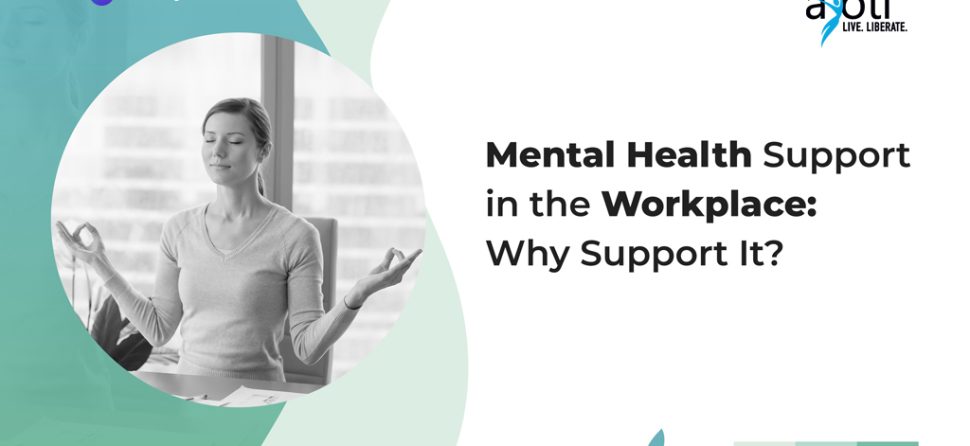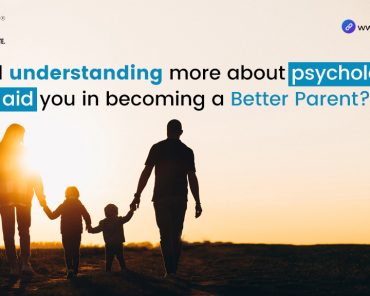By ayoti
Mental Health Support in the Workplace: Why Support It?

Nowadays, everyone’s main concern is mental wellness at work. While our understanding of poor mental health at work is expanding, going over the basics is still vital.
Supporting mental health at work is a necessity, not merely a desirable trait. The first stage is developing wellness solutions to support their employees’ success.
It is commonly established that workplace risk factors can negatively affect mental health. Let’s define mental health precisely before moving on to workplace solutions to address these issues.
What is Mental Health?
A person is in a mental health condition when they can manage daily challenges, work efficiently, discover their best potential and give back to their community. Like physical and social well-being, mental health is a critical component of overall health.
It’s crucial to emphasise that mental wellness is more than simply being free of mental illness. Both have good mental health, and a mental illness is possible. It is also possible to have bad mental health without having a disease.
How to Encourage Mental Health at Work?
When it comes to encouraging employee well-being at work, developing proactive alternatives that assist people in daily improving and maintaining their mental health is essential to fostering employee success.
Here are some proactive measures you may take to support mental health at work as an employer or employee.
As an Employer:
Employers can use the following tactics to encourage mental health at work:
- Employee Assistance Program (EAP)
An EAP is a work-based program that traditionally helps employees with personal or professional issues affecting their well-being or ability to perform well at work.
- Relaxation Space
Employees can rest and decompress during midday breaks in designated quiet areas for such activities.
It is also crucial to make it socially and culturally acceptable to use these locations for breaks. Managers and leaders can set the tone.
- Clinical Screenings
Clinical assessments are performed by mental health specialists who, where necessary, offer feedback and therapeutic referrals. Otherwise, the work involved in getting evaluated and treated could be a barrier.
- Mental Health Assessment Tools
Self-assessment tools offer tools and questionnaires to evaluate mental health issues. Instead of offering a diagnosis, these tools aid in determining whether the employee may benefit from additional testing or support.
Such tools include- mental health metre quiz, mood assessment checklist, and work-life balance questionnaires.
As an Employee:
Employees can push companies to provide stress management training and mental health programmes that suit their needs and interests to enhance mental well-being at work.
- Employer-Sponsored Programs
Employees should benefit from employer initiatives to develop their skills and get the required assistance.
- Share ups and downs with others
Employees can, when appropriate, talk more about their personal experiences with other coworkers to help lessen the stigma surrounding mental health.
Coworkers cannot replace mental health specialists, so unless you feel extremely safe, this should be more about expressing your humanity than going into details.
- Take Care of One’s Physical Health
Employees may make their mental health successful by looking after their physical health. This involves having a balanced diet, working out frequently, and getting enough rest.
- Practise Coping Skills During Workday
Employees can practise techniques that support healthy attitudes, relationships, and self-images to deal with the daily stressors of the workplace. Some coping tools include deep breathing, healthy communication, and positive self-talk and thoughts.
Ayoti- Redefining Mental Health in the Workplace
Ayoti is a cutting-edge social entrepreneurship platform that seeks to locate and utilise brilliant women at home to fill the market’s talent gap. In contrast to freelancing, Ayoti uses women who work from home to interact with customers, provide end-to-end solutions, hire people, and manage projects.
In contrast to other businesses, Ayoti redefines mental health by emphasising solutions that foster employees’ personal and professional growth. With understanding, creativity, and support, this is the right place that provides the best solution for its employees. Ayoti is a turning point for women who want to work from home while taking care of household duties since they cannot leave the house for work-related reasons or personal responsibilities.
This gives women a setting where they can make choices for their own interests and their families. Ayoti recognises the value of women’s empowerment and gives them the freedom and respect to live their lives as they see fit.





